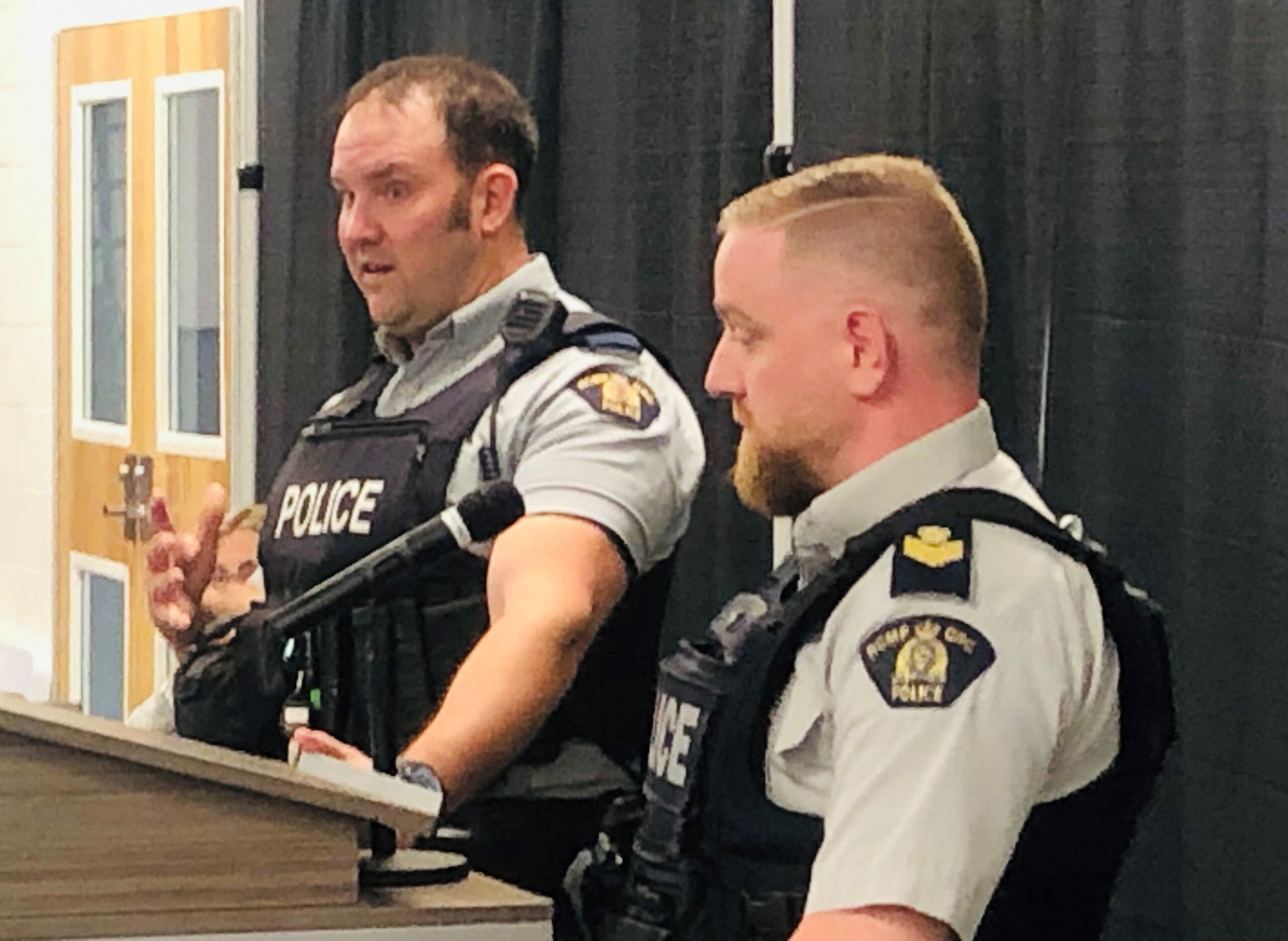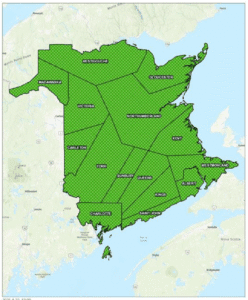Western District RCMP acknowledges challenges in massive coverage area but says adjustments are underway
Top-ranking officials from West District RCMP addressed Woodstock and Nackawic councils recently to address police coverage concerns in western New Brunswick’s rural areas.
Cpl. James Gallant and Sgt. Dan Sharpe of Western Valley Region RCMP addressed Woodstock council on Sept. 12. Staff Sgt. Eric Dube also attended the meeting.
On Sept. 18, Superintendent Andrew LeClair and Staff Sgt. Jeff Peters sat down for a lengthy discussion with Nackawic council members.
All the RCMP officials acknowledged that the lack of police visibility in rural areas is a common theme among residents.
“The message is clear,” Supt. LeClair told Nackawic councillors. “People want to see our police officers.”
He acknowledged the massive size and rural makeup of New Brunswick’s RCMP districts make it difficult to patrol all communities regularly.
“One of the challenges of rural policing is geography,” he said.
LeClair explained that West District, which includes the Nackawic and Woodstock’s Western Valley Region detachments, stretches from the Fundy shore along the Upper St. Jonn River Valley to the Quebec border.
While the district is divided into detachments and regions, he said most detachments have extensive coverage areas to patrol.
Cpl. Gallant and Sgt. Sharpe heard similar concerns in Woodstock.
Coun. Julie Calhoun-Williams said a constant complaint from the constituents in her ward, which includes Jacksonville, involves the lack of police visibility despite the level of crime.
“We do drive through Jacksonville and Jacksontown a lot,” replied Gallant. “If there is a need for more patrols, call us.”
Sharpe encouraged residents to contact the RCMP about specific concerns, noting the force can set up appropriate patrols if required.
During his Nackawic address, LeClair said New Brunswick’s J Division is taking positive steps to enhance the province’s four districts.
He praised J Division’s Commanding Officer DeAnna Hill for securing an additional $20 million investment from the province,
LeClair said that investment will deliver 50 frontline officers.
While still determining how many will end up in the West District, he knows some will. He cautioned, however, that filling those positions will take time.
LeClair said while the force wants to fill the vacant positions quickly, they also want to ensure they hire “great candidates.”
He acknowledged the force’s recruitment efforts had struggled in recent years.
“All police agencies are scrambling,” LeClair said.
He said the RCMP took recent steps to make the force a more appealing job option.
“It’s a more attractive package now,” said LeClair. “We will see our numbers go up.”
In Woodstock, Staff Sgt. Dube, during a brief discussion following Gallant’s and Sharpe’s presentation, also noted the force’s improved recruitment efforts.
He explained that one of the significant changes allows recruits to “pre-post” to New Brunswick.
LeClair acknowledged the RCMP’s policing model changes over the past years, with the closure of many community detachments.
“You’re seeing less police officers on the road than you did 20 years ago,” he said.
Several members of the Nackawic council, including Mayor Tim Fox and Deputy Mayor Greg MacFarlane, reminded the RCMP visitors that the force has a seldom-used detachment and two empty RCMP-owned houses.
LeClair said the Nackawic detachment will soon see more significant activity as it will house the force’s Crime Reduction Unit.
He said he is aware of the homes but noted the long-empty houses are currently not livable.
LeClair said he will pursue an answer surrounding the future of the homes.
Mayor Fox said council would prefer to see an RCMP officer and his family living in the houses, but in today’s climate of housing shortages, they would be happy to see them as home to someone at least.
A common denominator in the Woodstock and Nackawic presentations surrounded the many resources the RCMP brings to the crime-fighting efforts in the region.
By the “economy of scale,” LeClair explained, the RCMP can offer advanced crime-fighting resources that local police forces could not afford. He added the federal force works closely with other police and public safety offices across the province.
Echoing comments from Woodstock Police Force Gary Forward made during a council-in-committee report which preceded the Sept. 12 council session, Gallant said the two forces work well together.
He explained Woodstock police and the RCMP share information and resources in several areas, especially drugs, guns and other major crimes.














